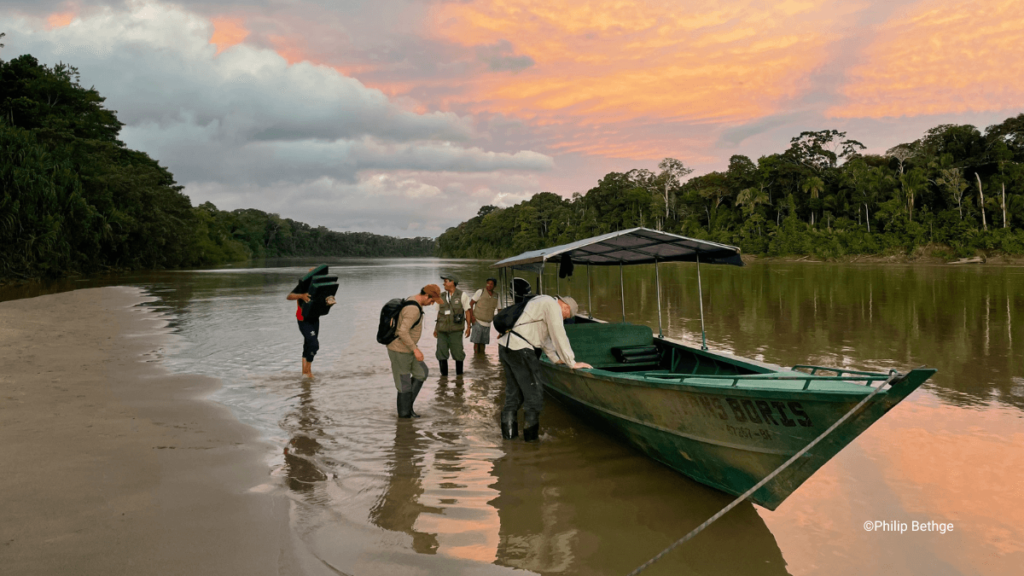The Earth is facing the sixth mass extinction in history: this is what science journalist Philip Bethge writes in the German news magazine “Der Spiegel”. He accompanied rangers for a series in the run-up to the COP15 biodiversity conference to explore the situation in some of the world’s most important biodiversity hotspots. In this double interview with Urs Reif, ranger in Black Forest National Park and ERF President, he shares his experiences.
Why rangers, gamekeepers and conservationists should get most of the money discussed in Montréal, what drives rangers in South America and Europe and how well they can fulfil one of the most important tasks of our time: nature conservation.
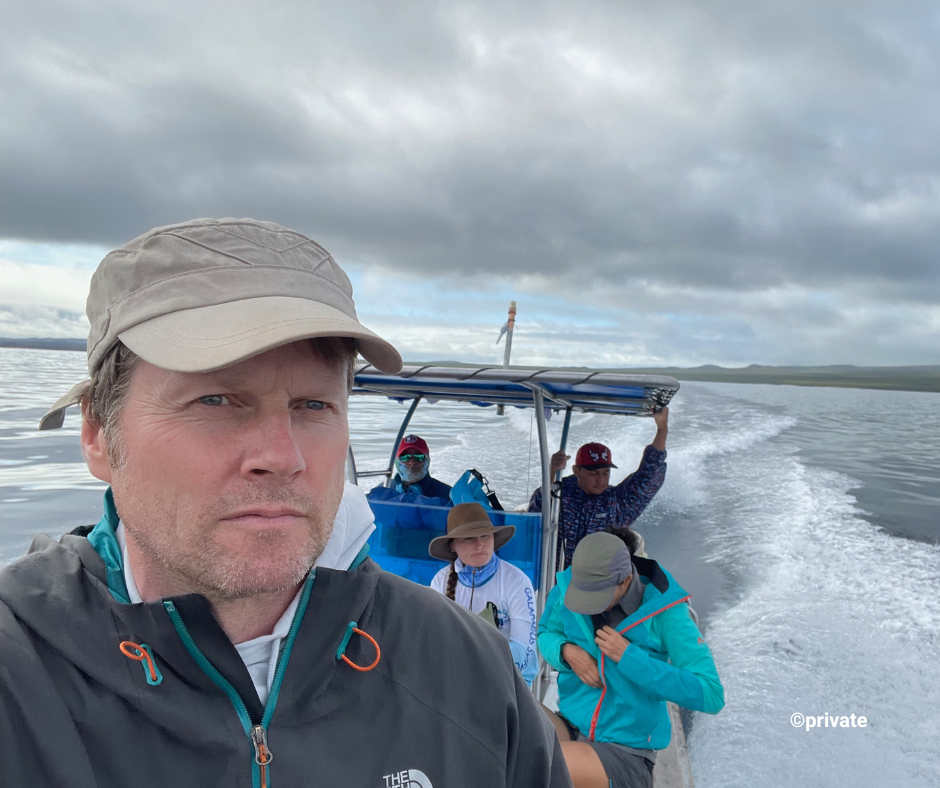
“Rangers are central to species protection. The money discussed at COP15 should primarily go to them. They are nature’s first line of defence and have my respect.”
Philip Bethge, science journalist
Philip, you were on the Galápagos Islands and in the Peru rainforest doing research on species extinction with rangers. What role do rangers play in species conservation there?
A very big one. Rangers are central to species protection, because they ensure on the ground that nature reserves are actually protected. If no one pays attention to compliance with the rules, these areas will very quickly become over-exploited. In the Galápagos Islands, the main issue is the marine protected area, which has existed for a long time but is still threatened by fishing. In particular, large fishing trawlers are out at sea to bring in revenue despite the ban. You need people who go out by boat and monitor this. And also check whether the fishing techniques of the local fishermen are the ones they are allowed to use under exemption. The same applies to the completely untouched rainforest area of the Manu National Park in Peru: here, many dangers loom with loggers, gold panners, coca growers who are looking for cultivation areas difficult to access, road builders and other interest groups. Fending off all these desires is incredibly difficult in an area the size of Germany’s Thuringia. The rangers are not armed, but their counterparts often are. It’s an extremely dangerous job, but I got the impression that the rangers approach it with great calm. They are nature’s first line of defence and have my respect.
How well equipped are they for this enormous task?
One thing is the question of arming: should they be able to defend themselves against people with force? I think I would answer “no” because that tends to escalate the situation. Here, it is rather the state power that is responsible, even if this functions poorly due to the high level of corruption in Peru. What rangers need, of course, is more money. Most come from the communities in the national parks. They and their communities need economic perspectives from the protected areas. Otherwise, people quickly get the idea that they would rather sell the tree than protect it. It is very important that local rangers bring money into the communities and the national park thus creates value. So the bottom line is that they need to be paid better. Now at COP15, there was a lot of talk about how much money needs to be put in place. It is very important that a large part of this money goes to those who guard the nature reserves.
What drives rangers to do this often life-threatening job? Is it mainly the money, or are there more motives?
I would say it’s also pride. If they themselves understand why nature in their area is so special, their drive to protect it is great. But this includes the understanding that their environment should remain as it is for many reasons. And this can quickly turn in favour of exploitation again if there is no sufficient education about what significance such a forest has for the whole earth. The rangers I dealt with, however, knew quite well how important their work is. They are not only working against the dangers I mentioned, but also against resistance among the population: While here in Europe the opinion prevails that nature conservation is important, most people in Peru find it excessive to reserve so much land for it. It is different for people living in the protected area: it gives them access to resources that they are allowed to use in the forest around them as residents. But even this support is not stable if there is a lack of education about why protecting their home is important for the whole world. The nature they live in is a tremendous treasure. And the appetites are huge.
“Biodiversity in Europe is no less worthy of protection than e.g. in Congo. However, the need for protection of species such as the mushroom ‘Zitronengelbe Tramete’ are more difficult for the rangers to communicate than mountain gorillas.”
Urs Reif, ranger of Black Forest National Park and ERF President
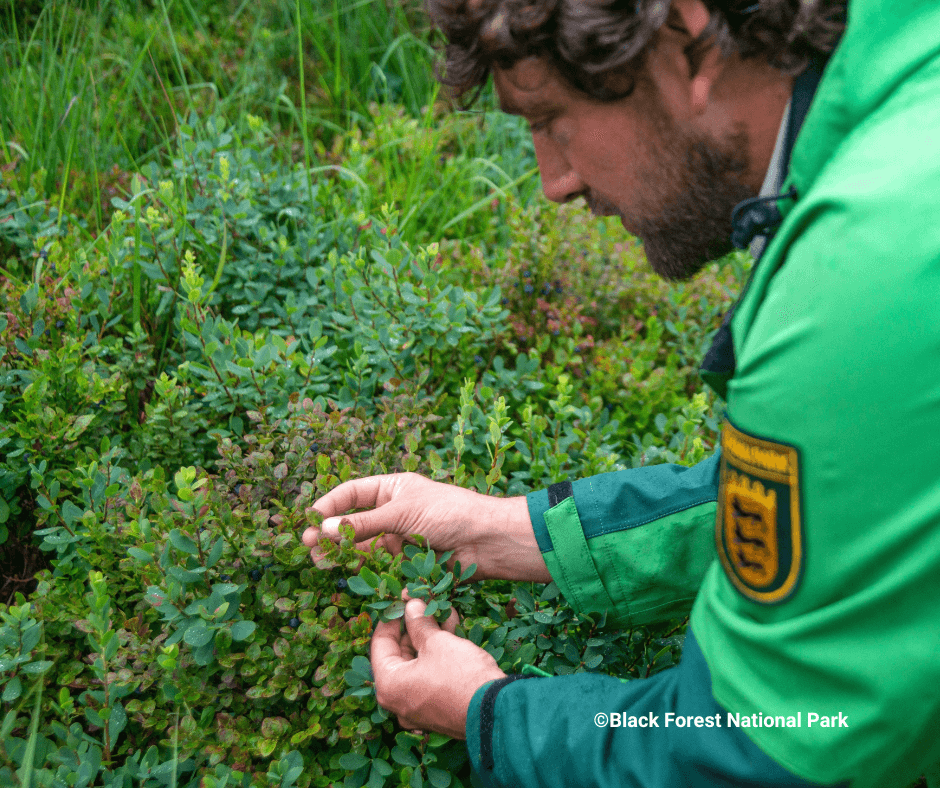
Urs, rangers like you are also on duty every day in Europe. Why can’t nature protect itself here, where the exploitation of resources is less drastic?
In many regions of the world, biodiversity is very evident, for example in the Congo with mountain gorillas or in tropical regions. But the conclusion that other regions have less biodiversity and natural resources worth preserving does not hold. In almost all Central European protected areas, there are species and natural areas for whose protection we have a special responsibility. The EU has defined many of these through Natura 2000 and now with the new biodiversity targets. Often, however, they are not very spectacular: in the Bavarian Forest and Black Forest National Parks, for example, it is the “Zitronengelbe Tramete“, a small, yellow-glowing fungus that grows on dead wood. Much harder to grasp than a mountain gorilla, but no less important for biodiversity. Communicating this to people and anchoring support for conservation in the population is one of the great tasks of Europe’s rangers. We are also active in the fight for individual species, but much more so in environmental education. By the way, this is also because we have more people and less nature. And we definitely also have to deal with the exploitation of resources. One major issue is the use of wood: exploited forests are increasingly being trimmed for productivity at the expense of biodiversity. Resistance to further protected areas is therefore strong.
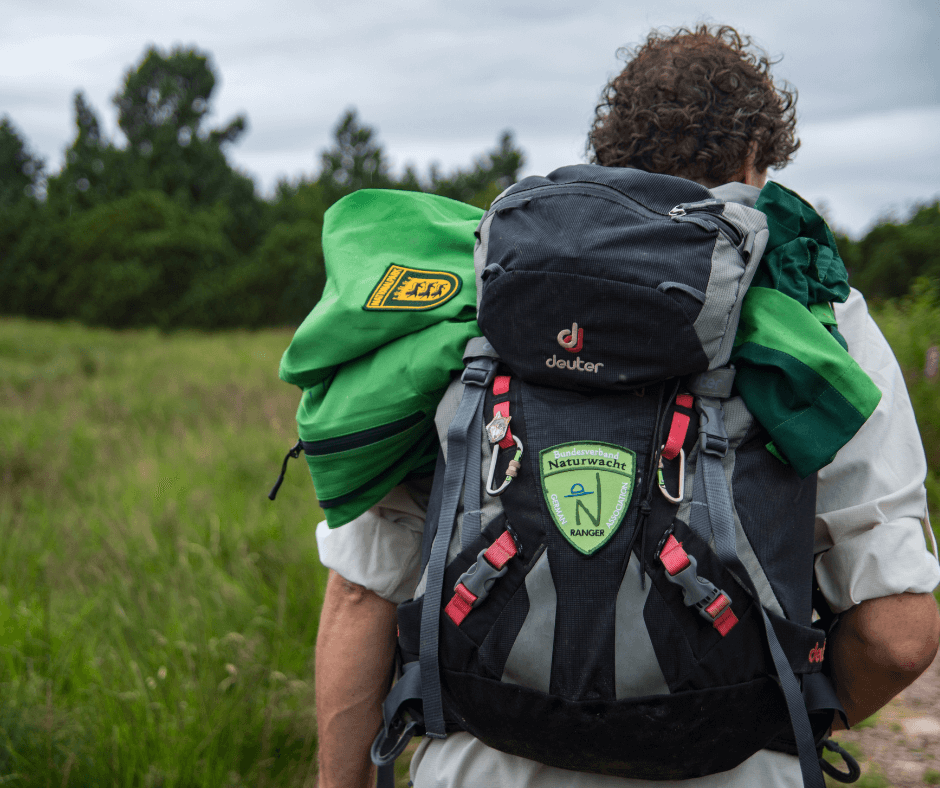
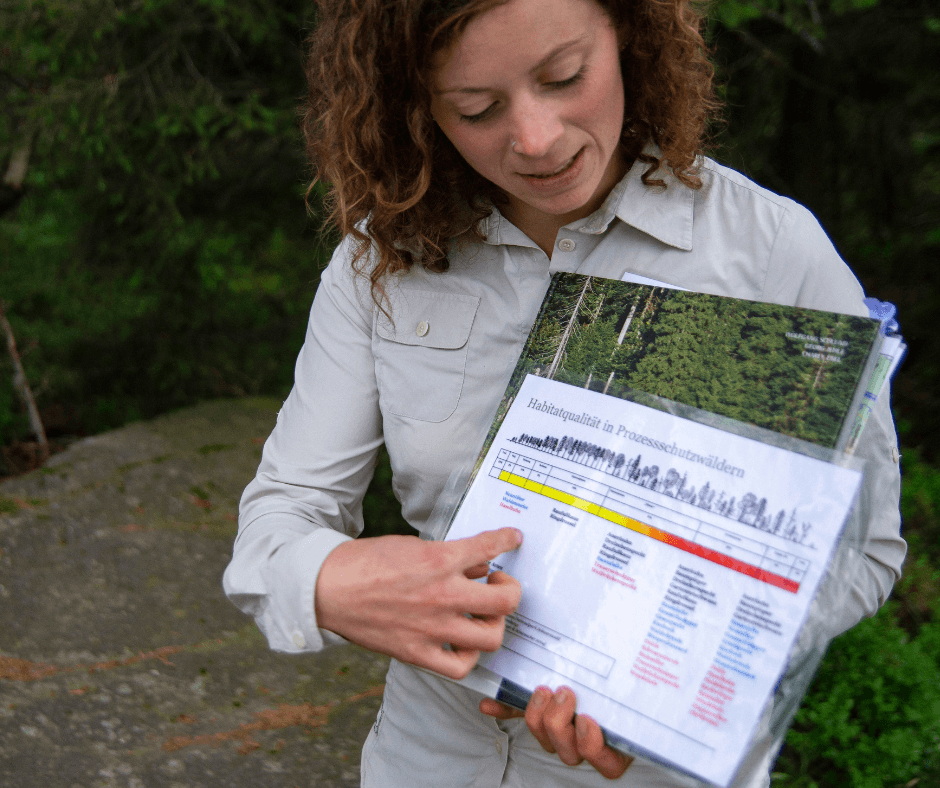
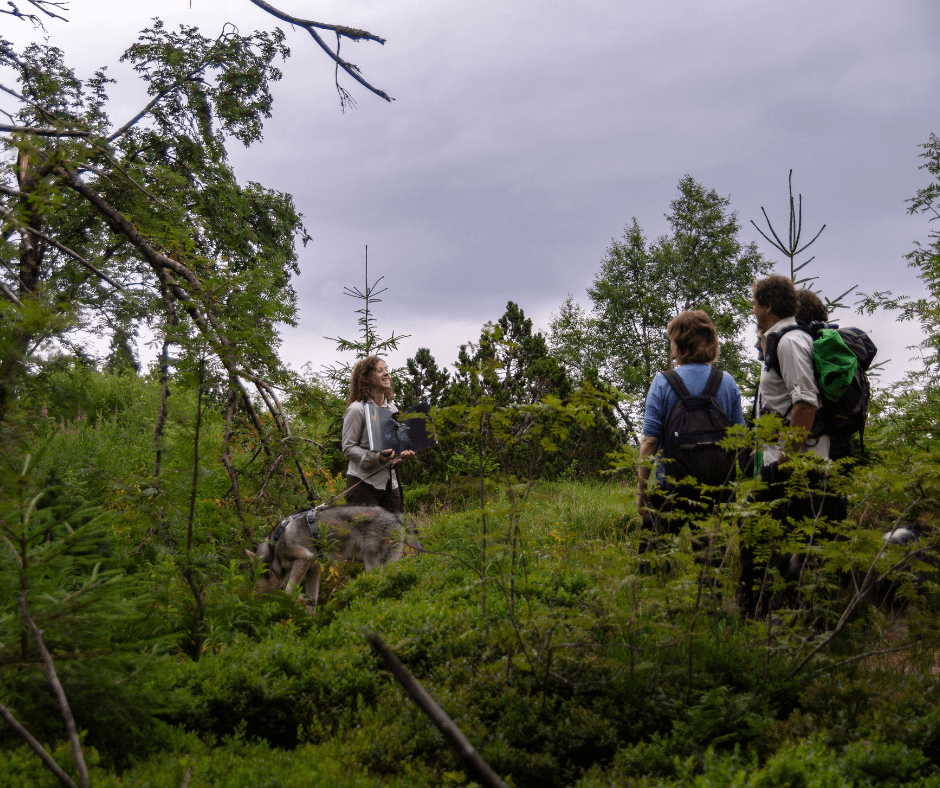
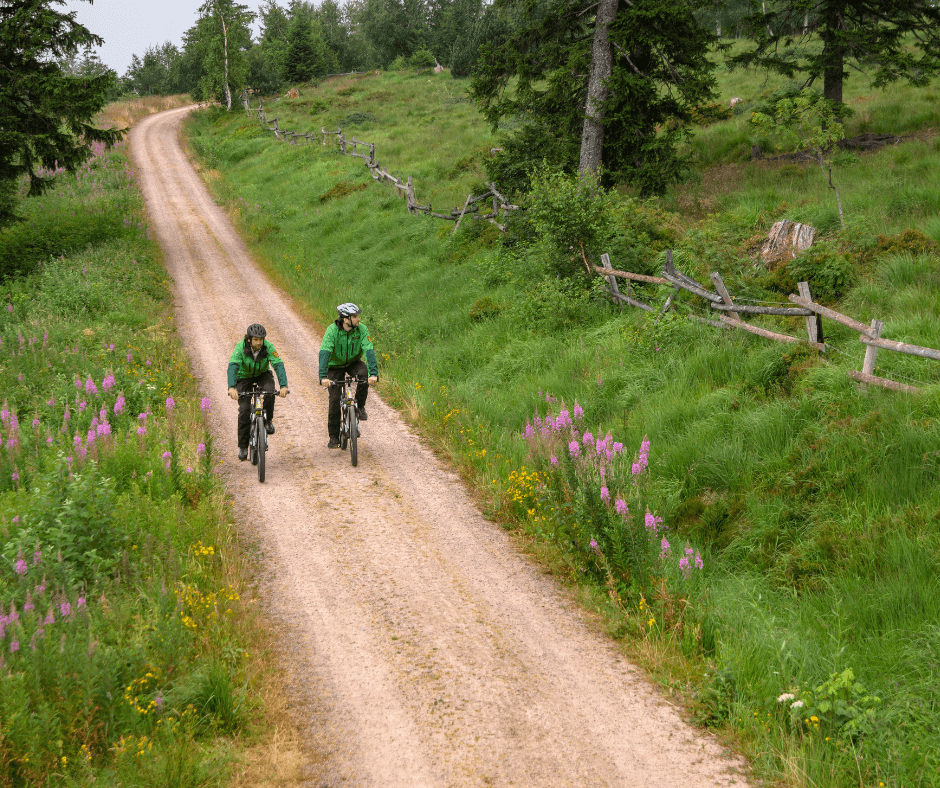
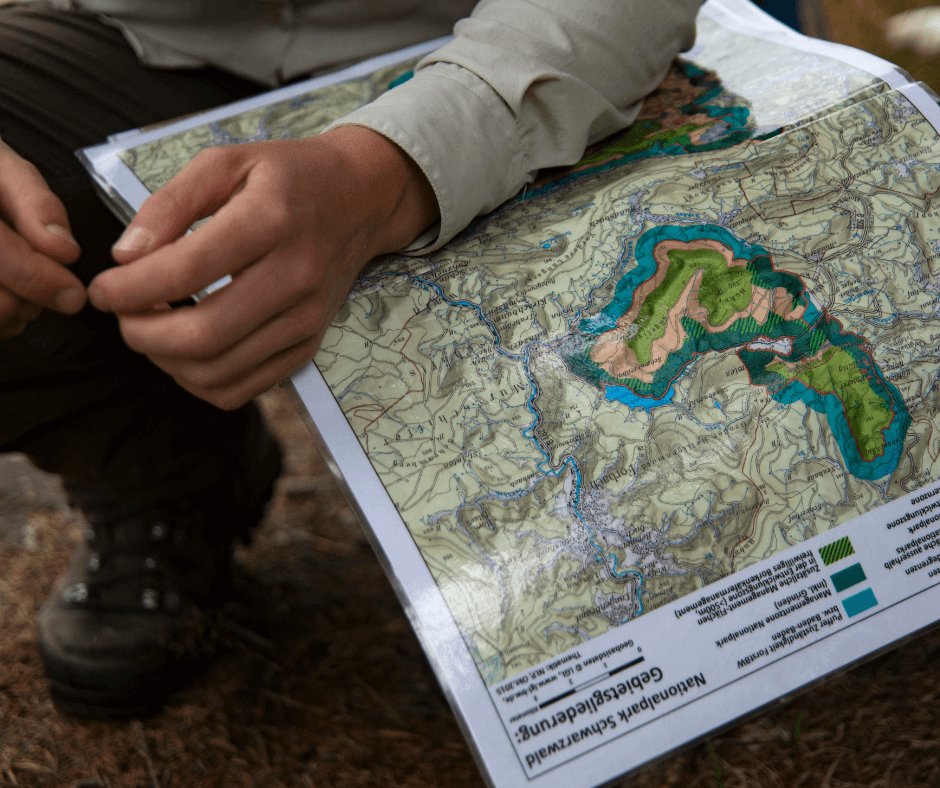
How well can European rangers do their job for species conservation?
It is no coincidence that we offer various trainings through the European Ranger Federation. The core equipment includes adequate pay and training. Especially the younger national parks in Germany are well equipped here. At the same time, we recently saw at the European Ranger Congress in Albania how poorly rangers are paid in some European countries, how few opportunities there are for further training, but also how little support there is from governments. These are exactly the issues that South American, Asian or African ranger associations report on, if on a different level. We also have poorly paid rangers who are extremely motivated and spearhead nature conservation.
How would you describe the motivation and self-image of Europe’s rangers? What distinguishes them from their colleagues in Africa, South America and Asia, what unites them?
For me, the biggest learning experience was at the international ranger congresses like the European Ranger Congress or the International Ranger Congress in Nepal with more than 500 rangers from 70 countries: Whether they are people with paramilitary training who are at risk of being shot in everyday life, or rangers without sovereign powers who do pure environmental education: The heart and soul for one’s own work, with which one stands up for certain animals or natural areas every day, runs through regardless of the country of origin. It doesn’t matter whether you talk to people, build fences, defend the animals or do completely different things. But unfortunately, violence and crimes such as poaching are also common. Here in the Black Forest we just had a case of poaching, many still remember the chopped-off lynx paws that were lying in front of the house of two wildlife biologists of the Bavarian Forest National Park one morning. This is still at a relatively low level in our country. But I’m afraid we have to prepare our skills and equipment for an increase in such cases.
editorial work for this
content is supported by

Helden der Vielfalt: “Ranger sind die erste Verteidigungslinie der Natur”
Der Erde droht das sechste Massenaussterben der Geschichte: Das schreibt der Wissenschaftsjournalist Philip Bethge im deutschen Nachrichtenmagazin “Der Spiegel”. Er hat für eine Serie im Vorfeld der Artenschutzkonferenz der COP15 Ranger und Naturschützer begleitet, um die Situation in einigen der wichtigsten Biodiversitäts-Hotspots der Welt zu erkunden. Im Doppelinterview mit Urs Reif, Ranger im Nationalpark Schwarzwald und Präsident der European Ranger Federation, berichtet er von seinen Erfahrungen. Warum Ranger, Wildhüter und Naturschützer den Großteil der in Montréal diskutierten Gelder für Biodiversität bekommen sollten, was Ranger in Südamerika und Europa antreibt und wie gut sie einer der wichtigsten Aufgaben unserer Zeit – dem Naturschutz – nachkommen können, diskutieren die beiden hier.
Philip, Du warst auf den Galápagos Inseln und im Peruanischen Regenwald auf Recherche zum Thema Artensterben mit Rangern unterwegs. Welche Rolle spielen Ranger dort für den Artenschutz?
Eine sehr große Rolle. Ranger sind für den Artenschutz zentral, denn sie sorgen vor Ort dafür, dass Naturschutzgebiete auch tatsächlich geschützt werden. Wenn keiner auf die Einhaltung der Regeln achtet, wird in diesen Gegenden sehr schnell Raubbau betrieben. Auf den Galapagos Inseln geht es im Wesentlichen um das Meeresschutzgebiet, das es zwar schon lange gibt, das aber trotzdem durch Fischerei bedroht ist. Vor allem sind große Fischtrawler draußen auf dem Meer unterwegs, um trotz des Verbots Erträge einzufahren. Da braucht es Leute, die mit dem Boot rausfahren und das überwachen. Und auch kontrollieren, ob die Fangtechniken der lokalen Fischer die sind, die ihnen nach Ausnahmeregelung erlaubt sind. Dasselbe gilt für das vollkommen unberührte Regenwaldgebiet des Manu Nationalparks in Peru: Hier drohen mit Holzfällern, Goldwäschern, Kokaanbauern, die möglichst schwer zugängliche Anbauflächen suchen, Straßenbauern und anderen Interessengruppen viele Gefahren. All diese Begehrlichkeiten abzuwehren, ist wahnsinnig schwierig in einem Gebiet von der Größe Thüringens. Die Ranger sind nicht bewaffnet, ihr Gegenüber dagegen ist es oft. Das ist ein extrem gefährlicher Job, den die Ranger nach meinem Eindruck aber mit großer Gelassenheit angehen. Sie sind die erste Verteidigungslinie der Natur und haben meine Hochachtung.
Wie gut sind sie denn für diese enorme Aufgabe ausgestattet?
Das eine ist die Frage der Bewaffnung: Sollten sie in der Lage sein, sich gegen Menschen mit Gewalt zu verteidigen? Ich glaube, ich würde sie mit “Nein” beantworten, weil das die Situation eher eskaliert. Hier ist eher die Staatsmacht zuständig, auch wenn das durch die hohe Korruption in Peru schlecht funktioniert. Was Ranger und Wildhüter aber natürlich brauchen, ist mehr Geld. Die meisten Ranger kommen aus den Gemeinden in den Nationalparks. Sie und ihre Gemeinden brauchen wirtschaftliche Perspektiven durch die Schutzgebiete. Sonst kommen die Menschen schnell auf die Idee, dass sie den Baum lieber verkaufen als zu schützen. Es ist sehr wichtig, dass einheimische Ranger Geld in die Gemeinden tragen und der Nationalpark so Wertschöpfung schafft. Unterm Strich müssen sie also besser bezahlt werden. Bei COP15 wurde jetzt viel darüber geredet, wie viel Geld in die Hand genommen werden muss. Sehr wichtig ist, dass ein Großteil dieses Geldes bei denjenigen ankommt, die die Naturschutzgebiete bewachen.
Was treibt die Ranger an, diesen oft lebensgefährlichen Job zu machen: Ist es vor allem das Geld, oder gibt es da noch mehr Motive?
Ich würde sagen, es ist auch Stolz. Wenn sie selbst verstehen, warum die Natur in ihrem Gebiet so besonders ist, ist ihr Antrieb groß, sie zu schützen. Aber dazu gehört die Einsicht, dass ihre Umgebung aus vielen Gründen so bleiben soll, wie sie ist. Und die kann sich schnell wieder zu Gunsten von Ausbeutung drehen, wenn es keine ausreichende Bildung darüber gibt, welche Bedeutung so ein Wald für die gesamte Erde hat. Die Ranger, mit denen ich zu tun hatte, wussten allerdings ziemlich gut, wie wichtig ihre Arbeit ist. Dabei arbeiten sie nicht nur gegen die erwähnten Gefahren, sondern auch gegen Widerstände in der Bevölkerung: Während hier in Europa die Meinung überwiegt, dass Naturschutz und die Arbeit in den Schutzgebieten wichtig ist, finden die meisten in Peru es übertrieben, so viel Land für den Naturschutz zu reservieren. Bei den Menschen, die im Schutzgebiet leben, ist es zwar anders: Es bietet ihnen Zugang zu Ressourcen, die sie im Wald um sich herum als Anwohner nutzen dürfen. Aber auch diese Unterstützung ist nicht stabil, wenn die Bildung darüber fehlt, warum der Schutz ihrer Heimat für die ganze Welt wichtig ist. Die Natur, in der sie leben, ist ein gewaltiger Schatz. Und die Begehrlichkeiten sind riesig.
Urs, auch in Europa sind Ranger wie Du täglich im Einsatz. Warum kann die Natur sich hier nicht selbst schützen, wo die Ausbeutung von Ressourcen weniger drastisch ist?
In vielen Regionen der Welt ist die Biodiversität sehr offensichtlich, zum Beispiel im Kongo mit Berggorillas oder in den Tropengebieten. Aber der Rückschluss, dass andere Regionen weniger erhaltenswerte Biodiversität und natürliche Ressourcen haben, geht nicht auf. In fast allen mitteleuropäischen Schutzgebieten gibt es Arten und Naturräume, für deren Schutz wir eine besondere Verantwortung haben. Die EU hat viele davon über Natura 2000 und jetzt mit den neuen Biodiversitätszielen festgelegt. Häufig sind sie aber wenig spektakulär: In den Nationalparks Bayerischer Wald und Schwarzwald ist es zum Beispiel die Zitronengelbe Tramete, ein kleiner, gelb leuchtender Pilz, der auf Totholz wächst. Viel schwerer greifbar als ein Berggorilla, aber für die Biodiversität nicht weniger wichtig. Das den Menschen zu vermitteln und die Unterstützung für Naturschutz in der Bevölkerung zu verankern, ist eine der großen Aufgaben von Europas Rangern. Wir sind zwar auch im Kampf um einzelne Arten unterwegs, aber viel mehr noch in der Umweltbildung. Übrigens auch, weil wir mehr Menschen und weniger Natur haben. Und wir haben durchaus auch mit der Ausbeutung von Ressourcen zu tun. Ein großes Thema ist die Nutzung von Holz: Genutzte Wälder werden auf Kosten der Biodiversität immer mehr auf Produktivität getrimmt. Entsprechend groß sind die Widerstände gegen weitere Schutzgebiete.
Wie gut können europäische Ranger ihre Aufgabe für den Artenschutz erfüllen?
Nicht umsonst bieten wir über die European Ranger Federation verschiedene Trainings an. Zur Kernausstattung gehören angemessene Bezahlung und Ausbildung. Besonders die jüngeren Nationalparks in Deutschland sind hier gut ausgestattet. Gleichzeitig haben wir zuletzt beim European Ranger Congress in Albanien gesehen, wie schlecht Ranger in manchen Ländern Europas bezahlt werden, wie gering Fortbildungsmöglichkeiten, aber auch die Unterstützung durch die Regierungen sind. Das sind genau die Themen, von denen südamerikanische, asiatische oder afrikanische Rangervereinigungen berichten, wenn auch auf anderem Level. Auch wir haben schlecht bezahlte Ranger, die mit extrem hoher Motivation als Speerspitze für den Naturschutz unterwegs sind.
Wie würdest Du Motivation und Selbstverständnis von Europas Rangern beschreiben: Was unterscheidet sie von Kollegen in Afrika, Südamerika und Asien, was verbindet sie?
Für mich war der größte Lerneffekt auf den internationalen Ranger-Kongressen wie dem Europäischen Ranger Kongress oder dem Internationalen Ranger Kongress in Nepal mit mehr als 500 Rangern aus 70 Ländern: Ob es Leute mit paramilitärischer Ausbildung sind, die im Alltag erschießungsgefährdet sind, oder Ranger ohne hoheitliche Befugnisse, die reine Umweltbildung machen: Das Herzblut für die eigene Arbeit, mit der man jeden Tag für bestimmte Tiere oder Naturräume eintritt, zieht sich unabhängig vom Herkunftsland durch. Egal, ob man dafür mit Menschen redet, Zäune baut, die Tiere verteidigt oder noch etwas ganz anderes macht. Aber leider zieht sich auch der Umgang mit Gewalt und Verbrechen wie Wilderei durch. Hier im Schwarzwald hatten wir gerade einen Fall von Wilderei, viele erinnern sich noch an die abgehackten Luchspfoten, die eines Morgens vor dem Haus zweier Wildbiologen des Nationalparks Bayerischer Wald lagen. Noch hat das bei uns ein relativ geringes Niveau. Aber ich fürchte, wir müssen unsere Kompetenzen und Ausrüstungen auf einen Anstieg solcher Fälle vorbereiten.

